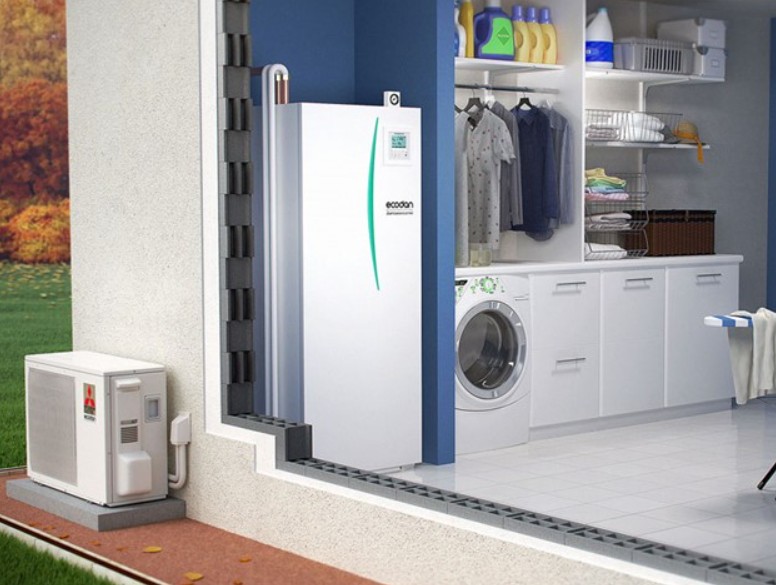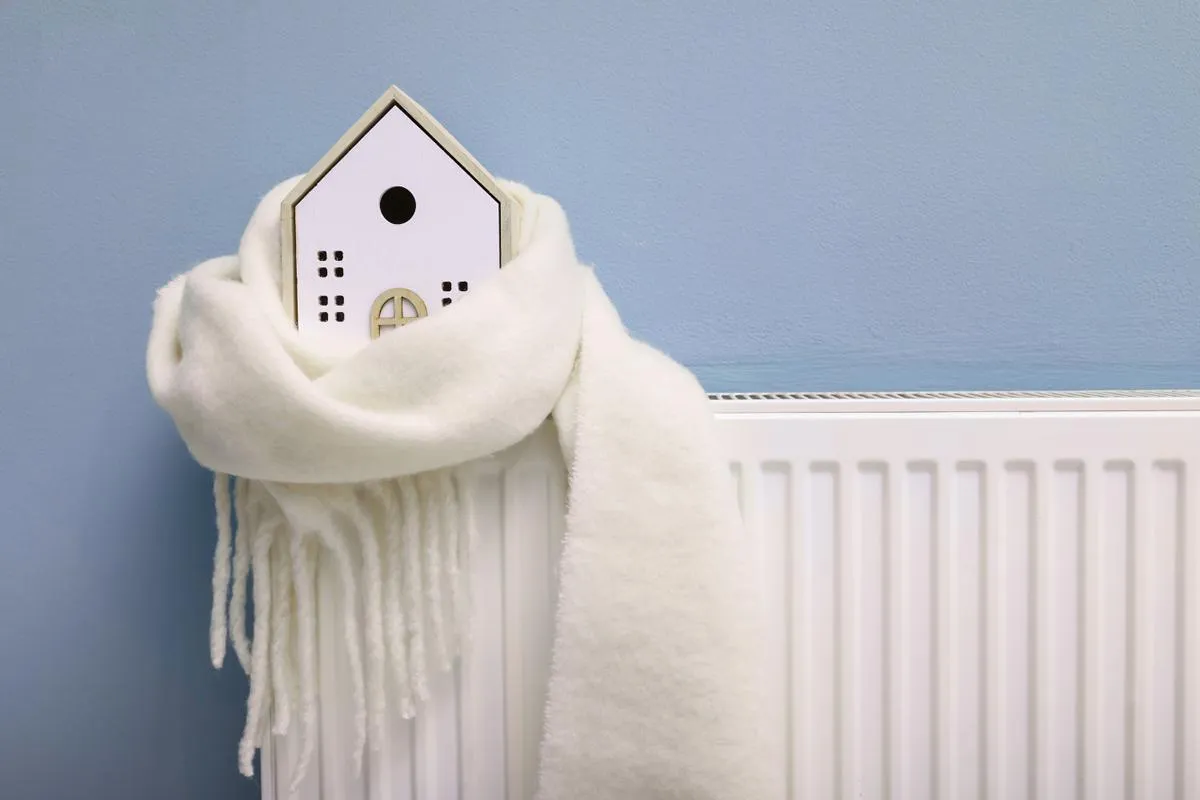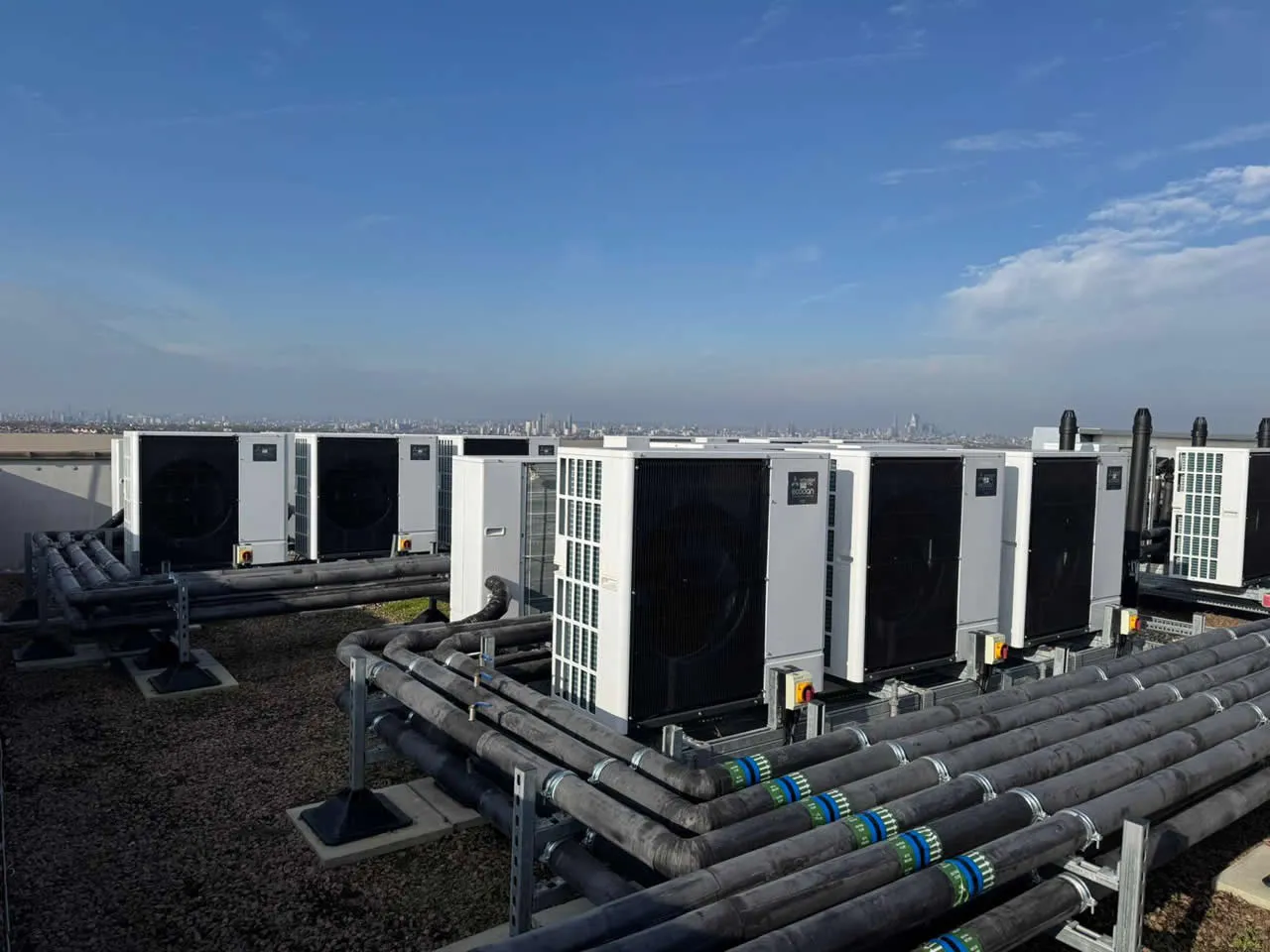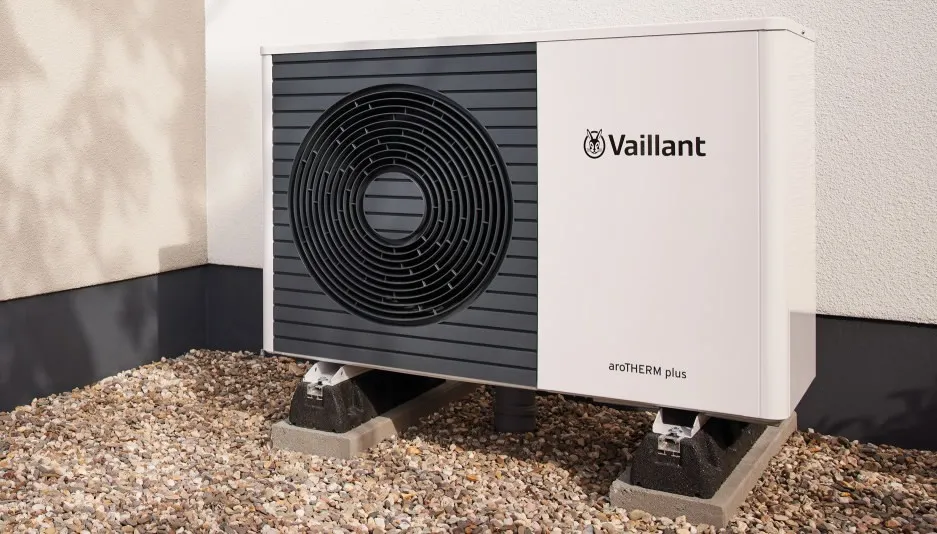Frequently Asked Questions
What is the ideal configuration for combining air source heat pumps and solar panels?
The ideal configuration for combining air source heat pumps and solar panels involves using the solar PV system to directly power the heat pump during daylight hours, ensuring optimal energy use. Consider installing a solar immersion controller to maximise efficiency and savings.
How many solar panels are required for a small heat pump?
The number of solar panels required for a small heat pump varies based on energy needs and panel efficiency. Typically, 2 to 4 solar panels can adequately power a small heat pump, depending on sunlight availability and system specifications.
Are air source heat pumps compatible with existing solar panel systems?
Air source heat pumps can be compatible with existing solar panel systems. They can effectively use the electricity generated by solar panels to operate, enhancing overall energy efficiency and potentially reducing heating costs.
What are the advantages of solar heat pumps?
The advantages of solar heat pumps include increased energy efficiency, reduced electricity costs, and lower carbon emissions. They harness renewable solar energy to provide heating and cooling, making them an environmentally friendly option for sustainable living.
How many solar panels do I need for a heat pump system?
The number of solar panels needed for a heat pump system depends on factors like your energy consumption, the heat pump's efficiency, and local sunlight availability. Typically, 4 to 10 panels may be required to adequately support a heat pump's energy needs.
Can solar panels reduce air source heat pumps operating costs?
Solar panels can reduce the operating costs of air source heat pumps by generating electricity to power them. However, the overall savings may be limited due to seasonal mismatches between energy production and heating demands.
Can air source heat pumps and solar panels provide year-round heating?
Air source heat pumps and solar panels can contribute to heating throughout the year, but their effectiveness varies with seasonal energy production and heating demands. While they can work together, reliance solely on them may not guarantee consistent year-round heating.
How does weather affect the performance of air source heat pumps with solar panels?
The performance of air source heat pumps with solar panels is influenced by weather conditions. Cold temperatures can reduce heat pump efficiency, while cloudy days may limit solar panel output, affecting overall energy generation and heating effectiveness.
How do solar heat pumps compare to traditional HVAC?
Solar heat pumps offer a more energy-efficient and environmentally friendly alternative to traditional HVAC systems. They harness renewable energy from the sun, resulting in lower energy bills and reduced carbon emissions compared to conventional heating and cooling solutions.
Can solar heat pumps provide both heating and cooling?
Solar heat pumps can indeed provide both heating and cooling. They work by transferring heat from the air or ground, allowing for efficient temperature regulation throughout the year.
How much do solar heat pumps cost to install?
The cost to install solar heat pumps varies, typically ranging from £8,000 to £15,000, depending on the system size and installation specifics. It's essential to consider potential savings on energy bills and government incentives when evaluating the overall investment.
Can solar panels generate electricity for air source heat pumps?
Solar panels can indeed generate electricity for air source heat pumps. By harnessing sunlight, solar PV systems provide renewable energy to power heat pumps, enhancing energy efficiency and reducing reliance on grid electricity.
How do solar panels enhance air source heat pumps performance?
Solar panels enhance air source heat pumps' performance by providing renewable electricity to power the pumps, thereby reducing reliance on grid energy. This synergy can lead to increased efficiency and lower energy costs, particularly when solar generation aligns with heating demands.
How do solar heat pumps work in cold climates?
Solar heat pumps operate efficiently in cold climates by extracting heat from the outside air, even at low temperatures. They use refrigerant to absorb this heat and transfer it indoors, providing effective heating throughout the winter months.
How much electricity can solar panels supply to air source heat pumps?
Solar panels can supply a significant amount of electricity to air source heat pumps, depending on their size and local sunlight conditions. Typically, a well-installed solar PV system can generate enough electricity to power the heat pump, reducing overall energy costs.
Can solar heat pumps be used in residential areas?
Solar heat pumps can indeed be used in residential areas. They efficiently harness solar energy to provide heating and hot water, making them a suitable and sustainable option for homes.
Can air source heat pumps work efficiently with solar panels?
Air source heat pumps can work efficiently with solar panels, as the electricity generated by the solar panels can power the heat pumps. However, efficiency may vary due to seasonal mismatches between energy production and heating needs.
What factors influence the efficiency of solar heat pumps?
The efficiency of solar heat pumps is influenced by several factors, including the quality of the heat pump system, the availability of sunlight, the temperature of the heat source, and the insulation of the building.
How do I size solar panels for heat pumps?
Sizing solar panels for heat pumps involves calculating the heat pump's energy requirements and matching them with the solar panel output. Generally, consider factors like your heating demand, local sunlight availability, and panel efficiency to determine the appropriate size.
What maintenance is required for solar heat pumps?
The maintenance required for solar heat pumps includes regular inspections, cleaning of the outdoor unit, checking refrigerant levels, and ensuring that filters are clean. Annual professional servicing is also recommended to optimise performance and efficiency.
Can solar panels power multiple heat pumps?
Solar panels can indeed power multiple heat pumps, provided that the total energy demand of the heat pumps does not exceed the electricity generated by the solar panels. Proper system design and sizing are essential for optimal performance.
What is the lifespan of solar heat pumps?
The lifespan of solar heat pumps typically ranges from 15 to 25 years, depending on factors such as maintenance, usage, and environmental conditions. Proper care can help maximise their efficiency and longevity.
How do solar heat pumps perform in winter?
The performance of solar heat pumps in winter can vary. While they can still operate efficiently, their effectiveness may be reduced due to lower solar energy production and colder temperatures, which can impact heating output.
What are the installation requirements for solar heat pumps?
The installation requirements for solar heat pumps include adequate roof space for solar panels, access to sunlight, appropriate plumbing and electrical connections, and compliance with local building regulations. Professional installation is highly recommended to ensure optimal performance.
Can I retrofit solar panels to existing heat pumps?
Retrofitting solar panels to existing heat pumps is indeed possible. By integrating solar PV with your heat pump system, you can harness solar energy to power the heat pump, enhancing energy efficiency and potentially reducing your energy costs.
What are the environmental benefits of solar heat pumps?
The environmental benefits of solar heat pumps are significant. They utilise renewable energy from the sun, reducing reliance on fossil fuels, lowering greenhouse gas emissions, and contributing to a more sustainable energy system.
How do solar heat pumps affect energy bills?
Solar heat pumps can significantly reduce energy bills by utilising renewable energy to heat your home. They lower reliance on traditional energy sources, leading to potential savings, especially when paired with solar PV systems for enhanced efficiency.
What is the best orientation for solar panels?
The best orientation for solar panels is typically south-facing in the Northern Hemisphere, as this maximises sunlight exposure throughout the day, enhancing energy production and efficiency.
Can solar heat pumps work in cloudy conditions?
Solar heat pumps can indeed operate in cloudy conditions. While their efficiency may be slightly reduced compared to sunny days, they still harness ambient heat effectively, ensuring reliable performance year-round.
What incentives are available for solar heat pump installations?
Incentives for solar heat pump installations include government grants, tax credits, and rebates that can significantly reduce upfront costs. Additionally, some regions offer low-interest financing options to encourage the adoption of renewable heating technologies.




